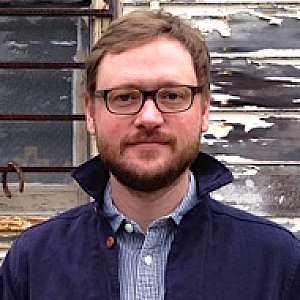
Ryan White
Content Editor

Content Editor
Ryan White is content editor of CenterforHealthJournalism.org, where he oversees daily content across a range of health topics. He also is the lead for the Center’s Health Matters webinar series. Ryan has nearly two decades of experience reporting, writing and editing for newspapers in California, national magazines and online outlets. After graduating from UC Berkeley in 2003, Ryan reported widely on the environment, local politics, urban planning, affordable housing and public health issues throughout the Bay Area and Los Angeles. In the past, he’s worked on KQED’s public television program “This Week in Northern California,” served as the editor of the Alameda Sun, worked as a reporter and editor for Marinscope Community Newspapers and freelanced for a long list of outlets. He was a 2012 California Fellow, reporting on the plight of the “anchor out” community in San Francisco Bay.

No self-respecting journalist wants to swallow wholesale the exaggerated or downright false claims some nonprofits occasionally make in justifying their raison d'être. And in today’s newsrooms, most reporters don’t have the time to fully evaluate such claims.

These are nerve-wracking times for directors of California’s public hospitals and clinics. With the Affordable Care Act’s expansion of Medicaid set to go into effect in early 2014, safety-net facilities could potentially find themselves losing a considerable share of their patients and revenue.

A California law allows courts to order assisted outpatient treatment for people with a history of serious mental illness and violence. This raises a dilemma: Should society be able to force mentally ill individuals to get treatment, or does that amount to a infringement on their civil liberties?

The complexities of health reform are enough to make anybody’s head seize up, let alone the diligent health reporter who is expected to serve as guide to all the policy changes.

Inefficiencies, profiteering, and disregard for evidence-based medicine plague our health care system, Otis Brawley of the American Cancer Society told the 2013 California Health Journalism Fellows. The coming "tsunami of chronic disease" stands to intensify the situation.

What if the real answer to runaway health care costs isn’t to be found in the legislative boxing rings of Washington, but rather in something as seemingly simple as curbing our sugar intake?

It’s too soon to say, but Accountable Care Organizations appear to be on the right side of several key health care trends. CareMore's Chief Medical Officer Ken Kim talks to the 2012 National Health Journalism Fellows.

Former National Health Journalism Fellow Kate Long suggests it takes much more than a Facebook update and fleeting volley of Tweets to turn a reporting project into a catalyst for meaningful change.

For the Milwaukee Journal Sentinel, 2011 was the year of infant mortality. An enterprise reporting project of impressive dimensions, the paper drilled down by zip code looking for the cause of high infant deaths rates and how they could be stemmed.

If you could do one thing to ensure that you had a long, healthy life, what would you do? If you have less than a high school degree at 25, you can expect to live another 44 years, on average. Those with a graduate degree, however, can expect to live another 60 years, on average.